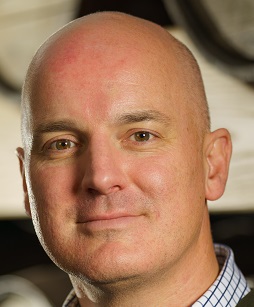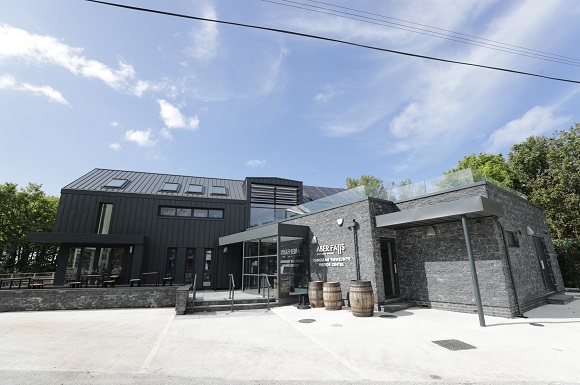 By James Wright,
By James Wright,
Managing Director
Aber Falls Whisky Distillery
It is everyone’s responsibility to drive positive change towards a more sustainable future. At Aber Falls Whisky Distillery, sustainability measures support the Welsh Government’s goals for a more environmentally conscious future and a safer planet. We are working collaboratively to reduce our carbon footprint.
It is also vital that we develop our sustainability ambitions for the medium- and long-term benefit of the business while keeping in mind the Welsh Government targets for its sustainability strategy.
Sustainability continues to grow as a priority for the business, and Aber Falls believes its whisky should put in as much as it takes out. As a result, Aber Falls operates a field-to-field approach, working alongside local farmers to grow the finest Welsh malted barley to ensure the ingredient is authentic and high-quality, improving the area’s economy.
Similarly, maximising local resources also plays a key part in reducing our carbon footprint. For example, Aber Falls has established a strong point of difference by committing to use only 100% Welsh malted barley grown by farmers in Wales and water from the famous 120-foot Aber Falls (Rhaeadr Fawr) waterfall. In the future, we aim to harness the nearby waterfalls’ power to meet the site’s energy requirements.
Aside from growing ingredients locally, the Distillery doesn’t let anything go to waste – it returns any leftover ingredients to local farms for use as fertiliser or to feed cattle. One of the farms, owned and managed by Eddie Jones, is a mere 200 yards from the Distillery, and 12 tonnes of spent grain is transported to his farm each week to feed his herd of dairy cattle.
Furthermore, Aber Falls is constantly investing in recruiting and retaining local people for its team, which also contributes to reducing the brand’s carbon footprint by having a primarily local workforce.
Lastly, we are continually reviewing processes to cut omissions, looking at renewable energy sources we can introduce into the Distillery. For example, currently, Aber Falls uses solar heat sources throughout the Distillery to further cut our carbon footprint and operate in an environmentally friendly way.

When it comes to how sustainability works in practice, businesses must consider the cash flow challenge it presents. This will affect everyone in the supply chain, from customers, retailers, and producers. So, it’s important that we all pull together for the long-term goals of a more sustainable future. Having a clear timeline for what is realistically achievable will help make it commercially manageable.
In terms of the social benefits of sustainability, Aber Falls’ focus on recruiting and retaining employees from the community allows locals to stay close to home for work, making for a more prosperous society.
Aber Falls also works with local businesses in the community to create a cohesive platform to enable independent companies to reach new audiences. One example of this is the Aber Falls Market which allows independent local businesses an opportunity to come together and sell their produce to locals and visitors new to the area.
Aber Falls continues to review its supply chain and packaging to work in a more sustainable way. The brand is also looking into how it consumes energy, specifically through the existing community hydro plant. However, this is a work in progress as certain technologies are not there yet. Once the technology is in place, this will certainly be a focus for the brand to harness in the future. In the meantime, we actively use renewable energies through our existing partners.












